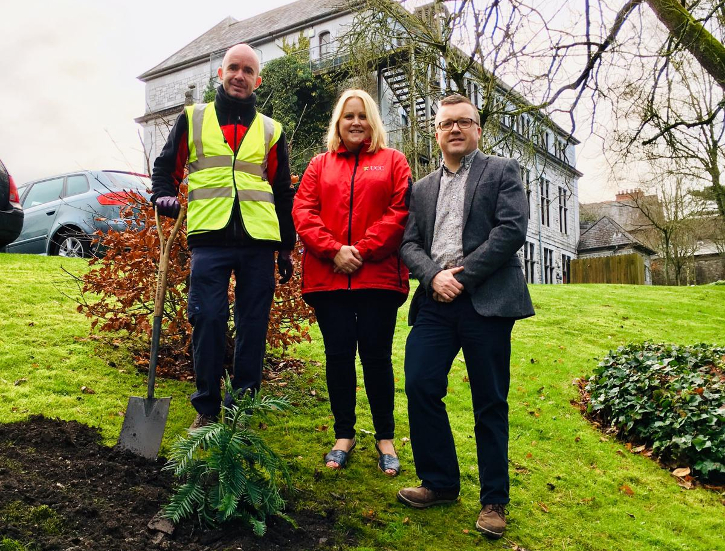In This Section
- Home
- About the College
- Governance
- College Committees & Steering Groups
- College Assembly
- College Council
- College Executive Management Committee
- College Academic Programmes and Curriculum Development Committee
- College Graduate Studies Committee
- College Research & Innovation Committee
- College Teaching Learning and Student Experience Committee
- College Student Recruitment and Outreach Committee
- College Sabbatical Research Leave Committee
- College of SEFS Adjunct Appointments Committee
- International Education Committee
- College Postgraduate Student Committee
- Athena SWAN Steering Group
- College Committees & Steering Groups
- Human Resources
- UCC STEM Awards
- Scholarships and Prizes
- Women in STEM Panel Talks
- Inaugural Professorial Lectures
- Athena SWAN in SEFS
- Proposal Calls
- Contact Us
- Science in Society Public Lecture Series
- Governance
- News
- Staff
- Schools and Departments
- Current Students
- Undergraduate Courses
- Postgraduate Courses
- International Students
- Research and Innovation
- Employability and Careers
- Outreach and Public Engagement
- Science Week
- Transition Year Programmes
IAPB presents 'living fossil' Wollemia Pine to UCC

Dr Barbara Doyle Prestwich and Dr Eoin Lettice presented a Wollemia Pine specimen to University College Cork this week to mark the culmination of their leadership of the International Association for Plant Biotechnology (IAPB).
The tree, planted on UCC's main campus, joins many other specimen trees in UCC's botanical collection - dating from the 1840s and a 'living laboratory' at the heart of the City and University. Wollemia nobilis, a native of Australia, is often described as a 'living fossil' having been discovered only in 1994. Prior to that, the tree was only known in the fossil record - up to 200 million years ago. The specimen planted at UCC is part of an international effort to conserve this critically-endangered species by propagating from the 100 or so plants known to exist in the wild using plant tissue culture.
"Wollemia nobilis is one of the rarest plants on earth and the story of its rediscovery and preservation using plant tissue culture - itself a form of plant biotechnology - is a fascinating one. We're delighted to mark the successful stewardship of the IAPB and the hosting of the IAPB Congress in Ireland this year by planting this iconic species amongst UCC's historic botanical collection", said Dr Eoin Lettice, Treasurer of the IAPB.
To mark the culmination of our leadership of the International
— Dr Eoin Lettice (@eoinlettice) December 20, 2018
Association for Plant Biotechnology, Dr Barbara Doyle Prestwich & I
planted a Wollemia Pine in University College Cork this week
[Pictured: Barbara Doyle Prestwich, Eoin Lettice & Eileen Daly, all
from @uccBEES] pic.twitter.com/8RBoGFBxEJ
Outgoing President of the IAPB, Dr Barbara Doyle Prestwich was keen to ensure that the association left an enduring legacy at UCC. "The IAPB Congress held this year in Ireland and hosted by UCC attracted leading scientists from over 50 countries to discuss and present the latest findings in the area of plant biotechnology. This was a UCC-led event and for the last four years the IAPB has been hosted at UCC in the School of BEES. As we prepare to hand over the reigns to our colleagues in South Korea, we thought it appropriate to mark the occasion by planting this amazing tree in the beautiful surrounds of our campus".
The IAPB is the largest international professional organisation representing the interests of the world-wide plant biotechnology community and was founded in 1963. IAPB 2018 was held in August this year and featured a range of high profile speakers including Nobel Laureate Prof. Ada Yonath; Prof. Roger Beachy - a scientific advisor to President Obama; and Michelle Miller, aka "Farm Babe".
Ireland held the presidency of the IAPB from 2014-2018 and a vote at IAPB 2018 meant that the next term of office 2018-2022 will be held by South Korea.
Wollemia nobilis is a 'living fossil' and critically endangered in its native Australia. Thanks to UCC Head Gardener @jdmurph73 and his team for facilitating us and adding this plant to the iconic UCC botanical collection. pic.twitter.com/fNw0yrwh1g
— Dr Eoin Lettice (@eoinlettice) December 20, 2018
College of Science, Engineering and Food Science
Coláiste na hEolaíochta, na hInnealtóireachta agus na hEolaíochta Bia
Contact us
Block E, Level 3, Food Science Building, UCC, Cork, T12 YN60.
